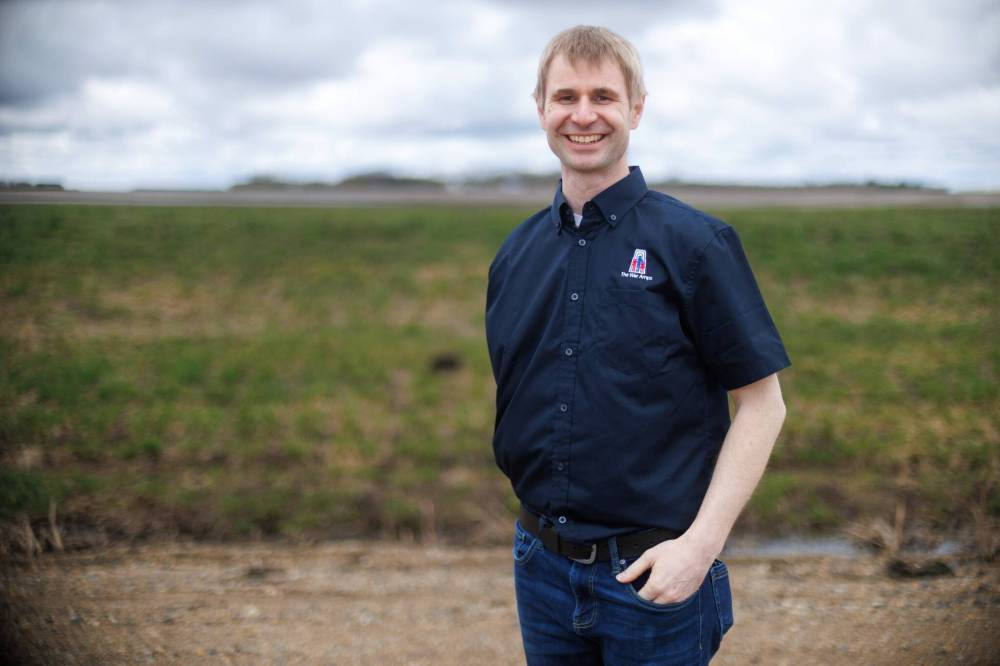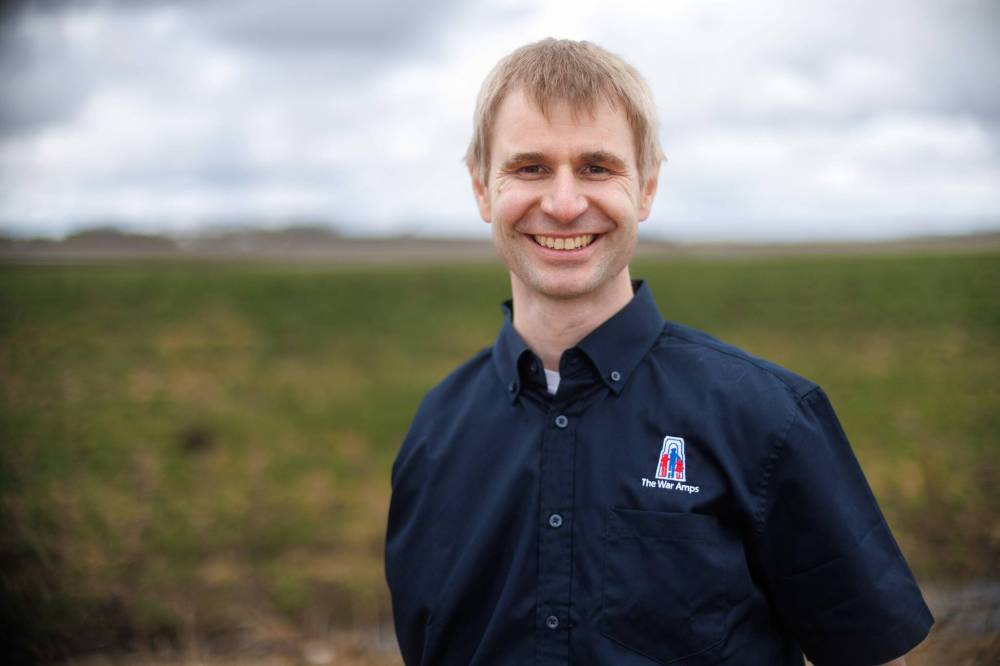Merrill Loeppky was only two years old when the War Amps child amputee program began helping him after he lost his right arm in a grain auger on the family farm near Neepawa.
It’s all thanks, in part, to people being reunited with their lost keys.
The War Amps’ key tag service has returned more than 1.5 million set of lost keys to their owners since it started in 1946.

In return for the key tags, as well as its seasonal address label program, many Canadians send donations to the War Amps. The organization received nearly $20 million in donations in 2022.
Loeppky, who is now 40, doesn’t remember that September day — but both he and his parents remember how the War Amps helped them.
“I don’t remember much,” he said. “That’s a good thing. I’m very fortunate to not have to live through the regrets.
“My life took me a different way.”
The War Amps was founded as the Amputations Association of the Great War in 1920, in the wake of the First World War when many amputee veterans came home and needed help.
After the Second World War, in 1946, the organization created its key tag service, both to help Canadians have a chance to get their keys back, but also to employ war amputees and pay them a competitive wage.
Decades later, the charity continues to mail out key tags, reunite keys with grateful owners, and employ amputees and others with disabilities. Bob Maguire, public awareness officer with War Amps, said their employees make the tags, stuff the envelopes for the mailings and, when keys are returned, send them to their owner.
Maguire said Manitobans should have received a mailing with this year’s key tag inside.
“We send them out to about seven million Canadians and, to date, we have returned 1.5 million sets of keys,” he said. “It’s how we’ve always raised funds for the amps”
Maguire said the service is needed now than ever because a new fob for a vehicle costs up to $500. Back in the day, getting replacement keys meant going to a locksmith and paying a few dollars for a new set.
One Manitoban, who wrote a note thanking the War Amps for returning her keys, said “I didn’t expect to see them again, so it was a great surprise.
“Keys are very expensive to replace these days.”
Maguire said, thanks to Canada Post, if a person finds a lost set of keys, all they have to do is drop them in the nearest mailbox. He said they can also call the toll-free number on the back of the tag.
“It’s free of charge to return the key.”
Decades after both world wars, the organization realized many child amputees needed assistance, so it created its child amputee (CHAMP) program in 1975, funded by the key tag service. Currently, 2,000 children are part of the program — the same one that helped Loeppky and his family.

Loeppky said the War Amps provided him with a prosthesis, but it didn’t work well because he had lost his arm and the area where the arm joins to the shoulder.
“I had to use a full body cast to keep it on,” he said. “It was hard: how do you strap something on when there is nothing to strap it to?”
Loeppky said there were also other ways the War Amps helped.
“As a child, there was also peer support,” he said. “There was advocating on behalf of others. Someone to help. There was even adapting a (farm machine) to put the throttle on the left; a tractor adaptation, too.
“Not everything can be adapted, but I can jump into my vehicle without it having to be adapted and modified.”
Loeppky’s mom, Linda, said they were referred to the War Amps while her son was being treated for his injury at the hospital in Brandon.
“The nurses connected us there,” she said. “We knew about the War Amps, but not about their CHAMP program.”
Linda said, for the family, one of the best things the organization did early on was match them with another family.
“Their child was already through high school and in university, but he had lost the same arm in a farm accident. It was very informative,” she said.
“We could see what life and the future would look like — that there was a life ahead. That was good to hear at that time.”
kevin.rollason@freepress.mb.ca

Kevin Rollason
Reporter
Kevin Rollason is one of the more versatile reporters at the Winnipeg Free Press. Whether it is covering city hall, the law courts, or general reporting, Rollason can be counted on to not only answer the 5 Ws — Who, What, When, Where and Why — but to do it in an interesting and accessible way for readers.